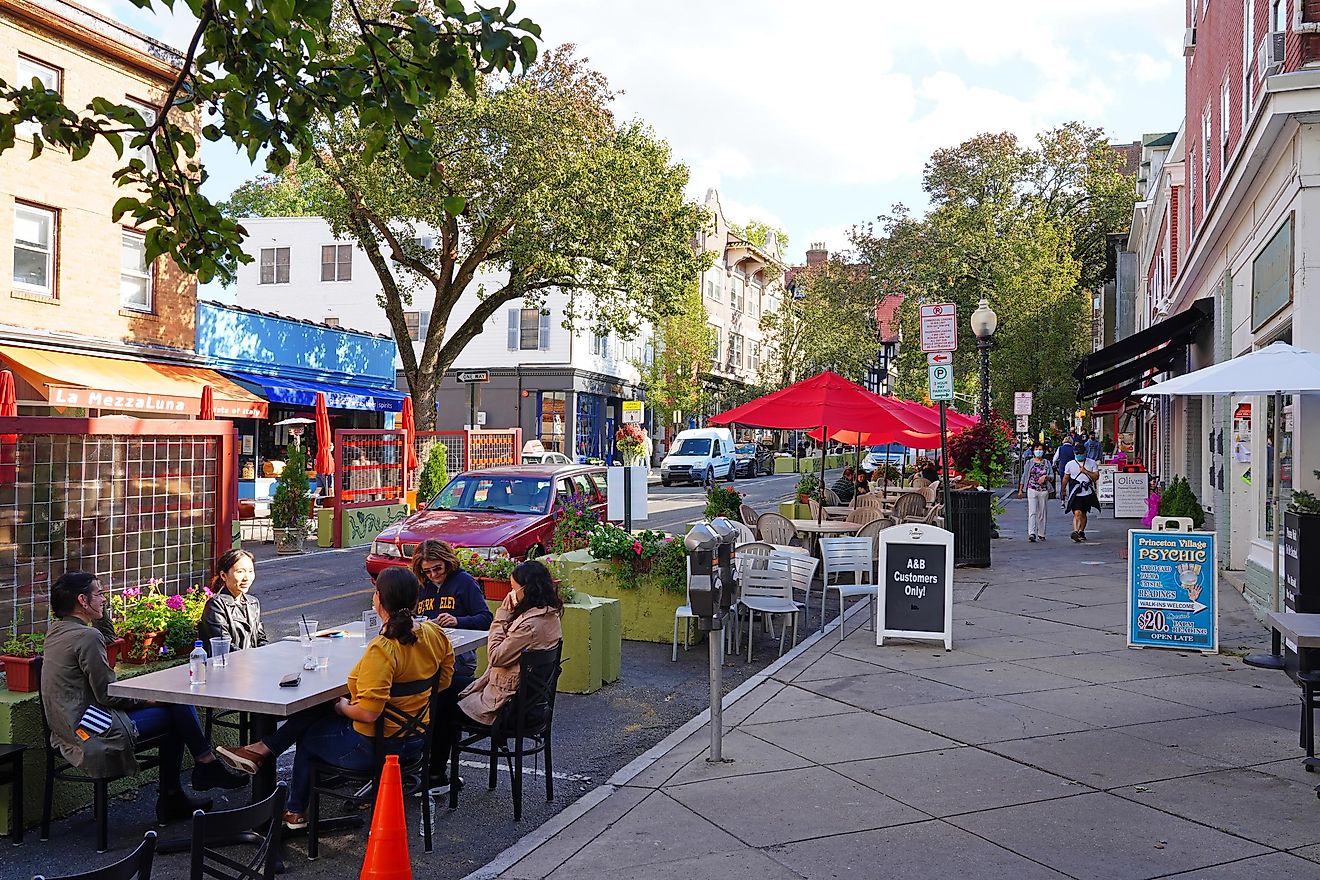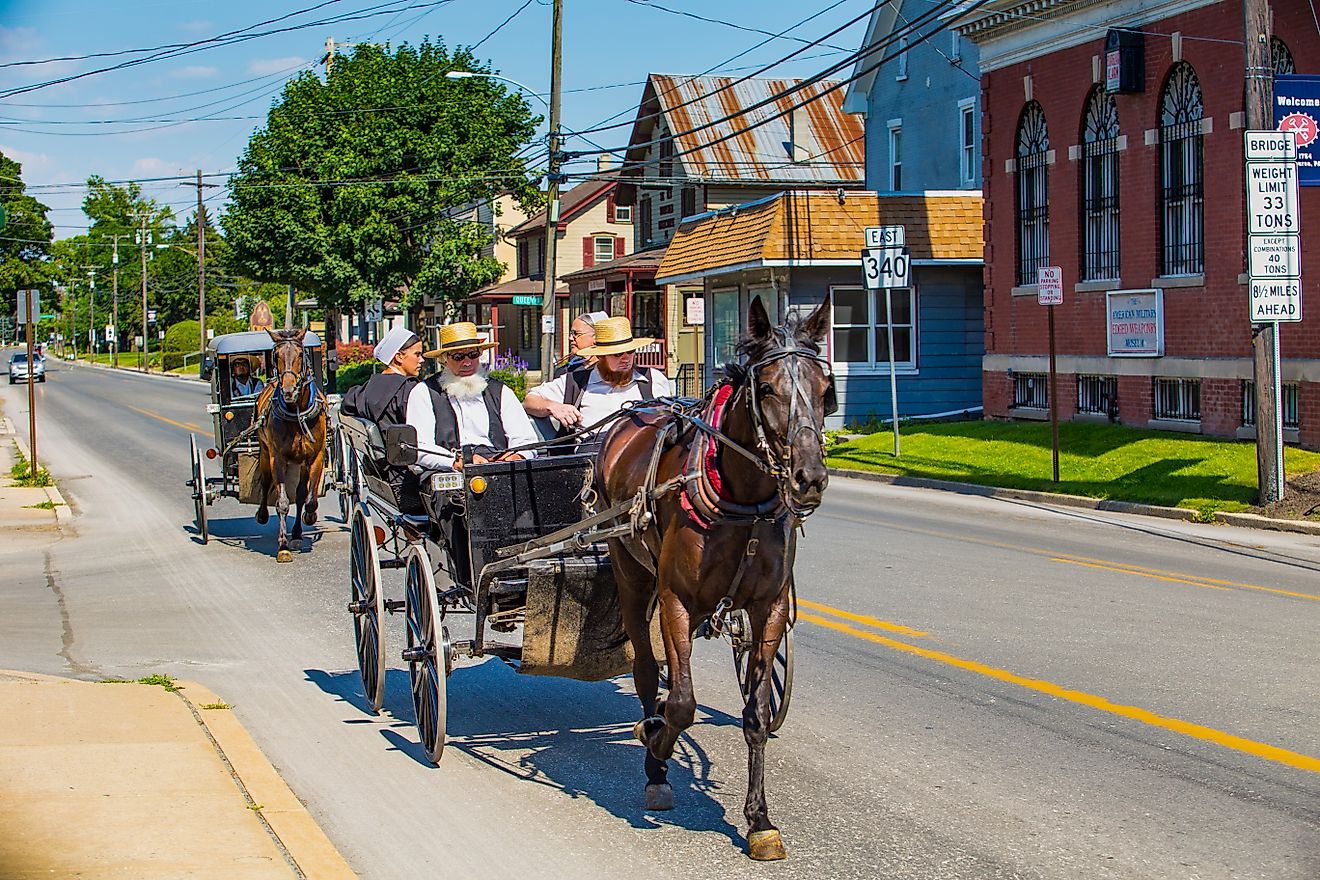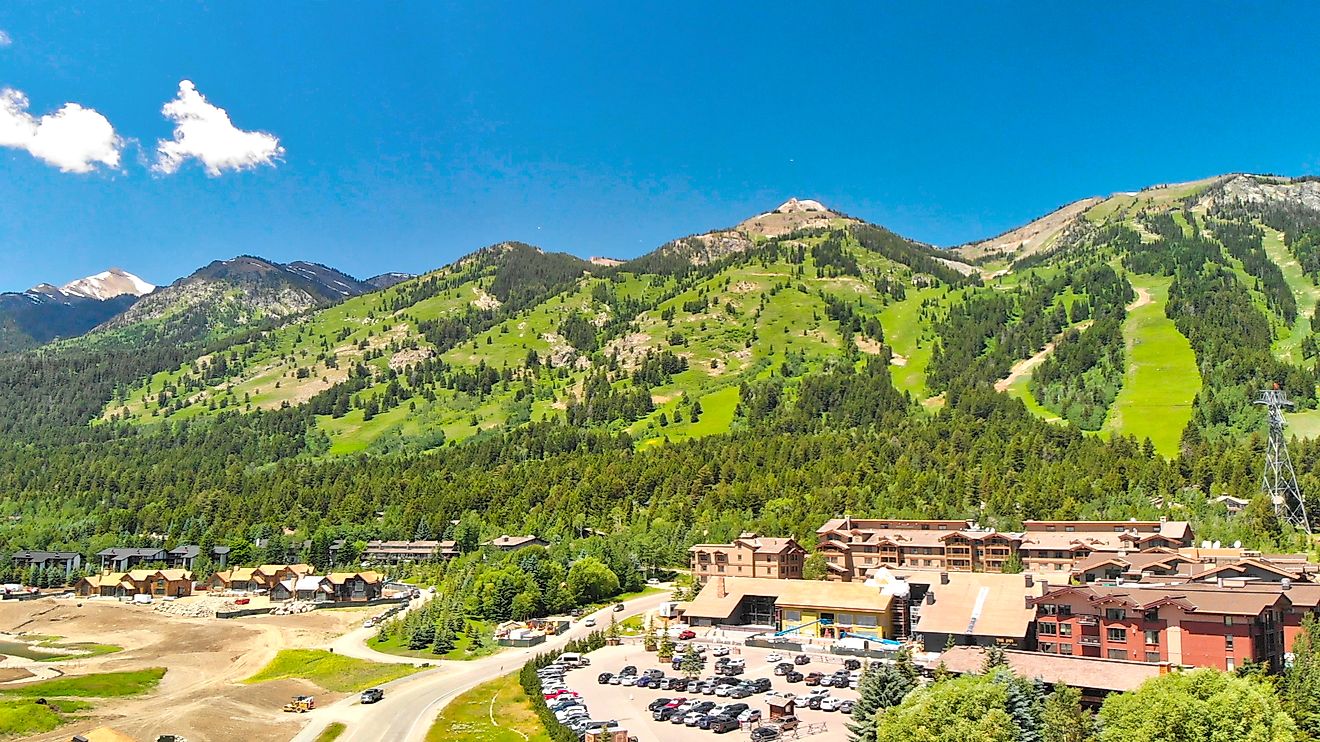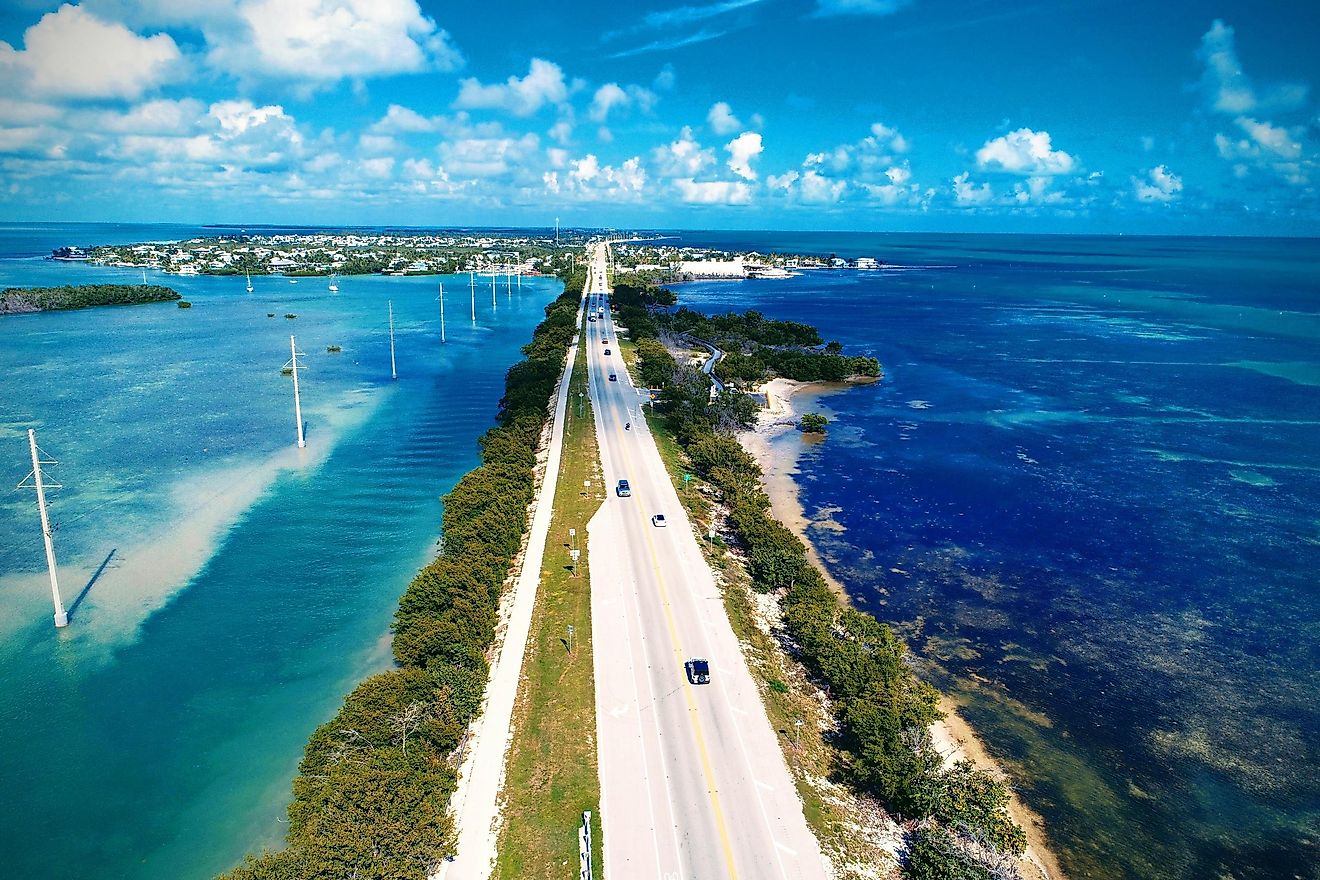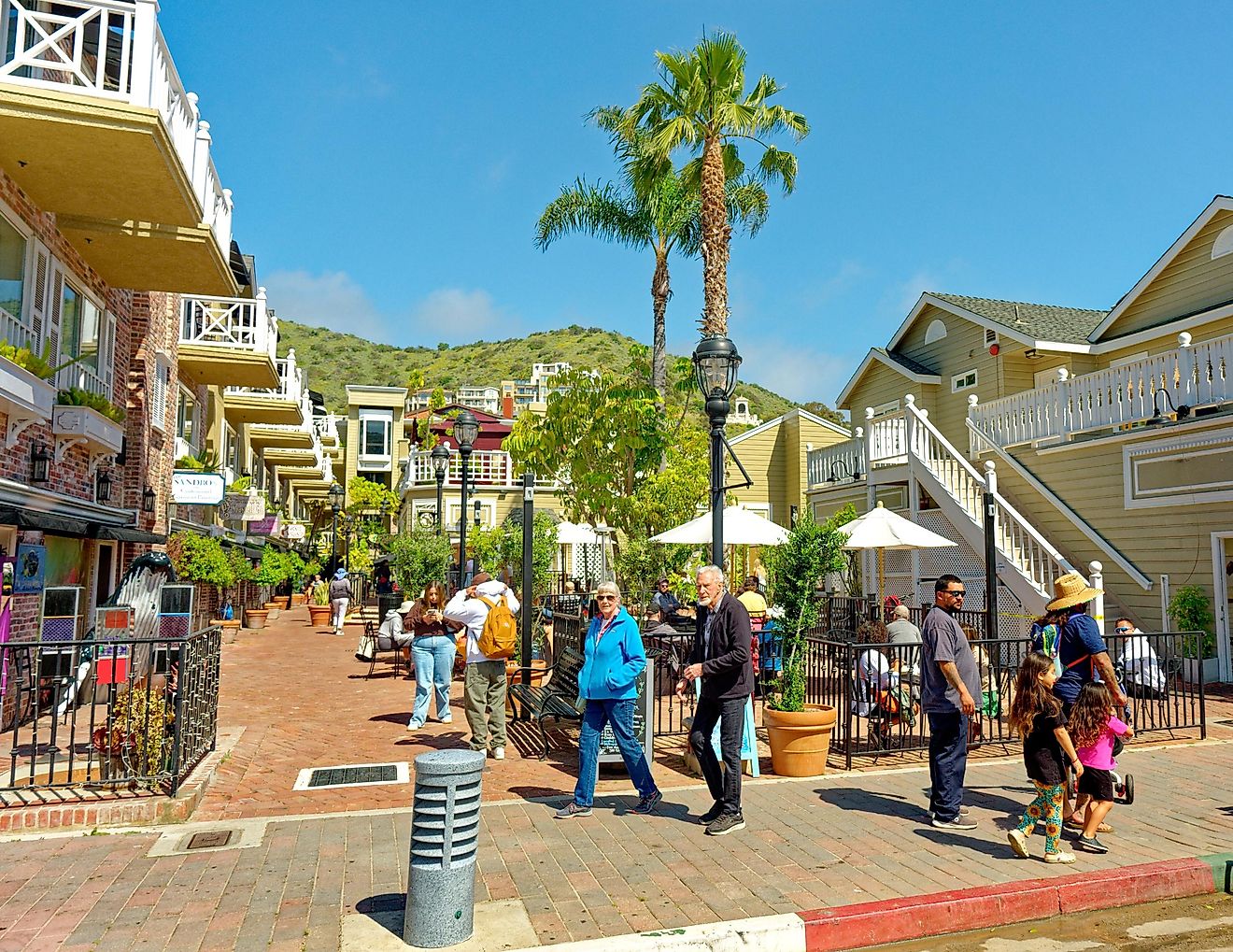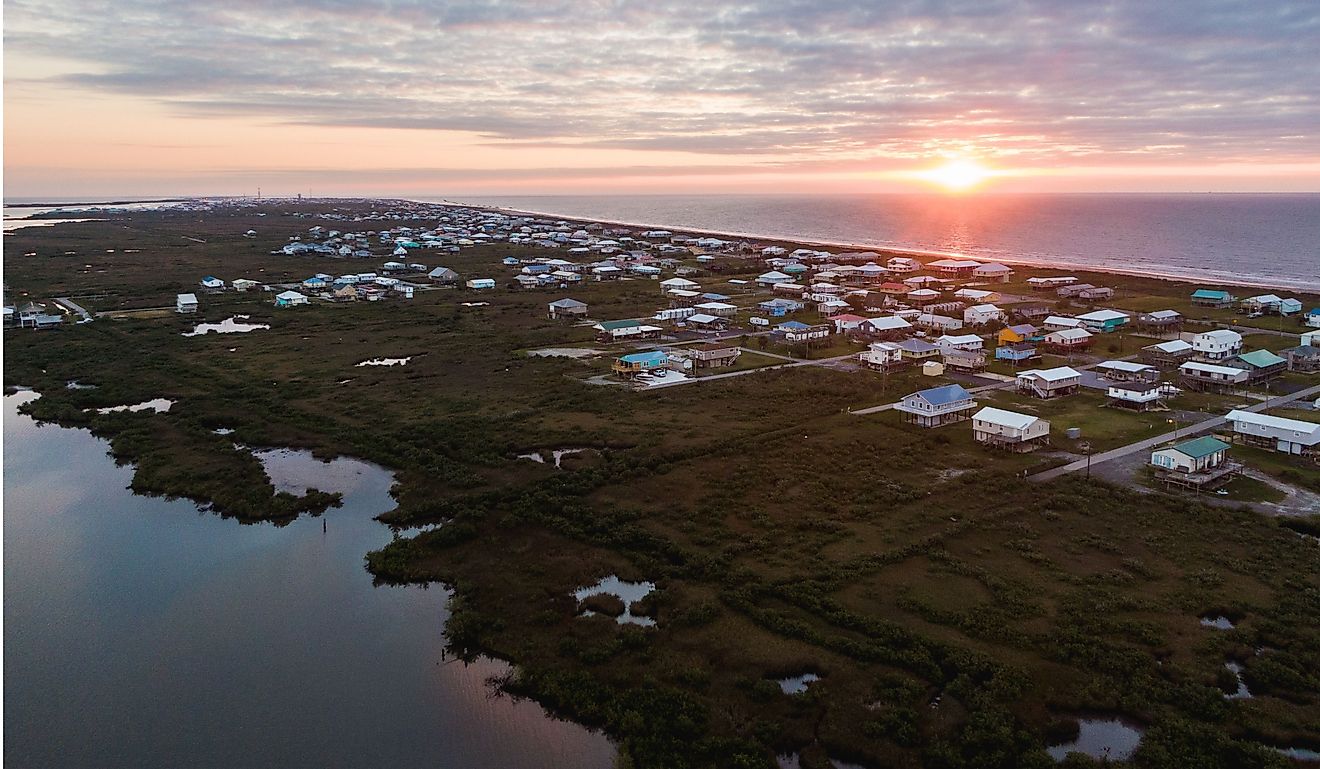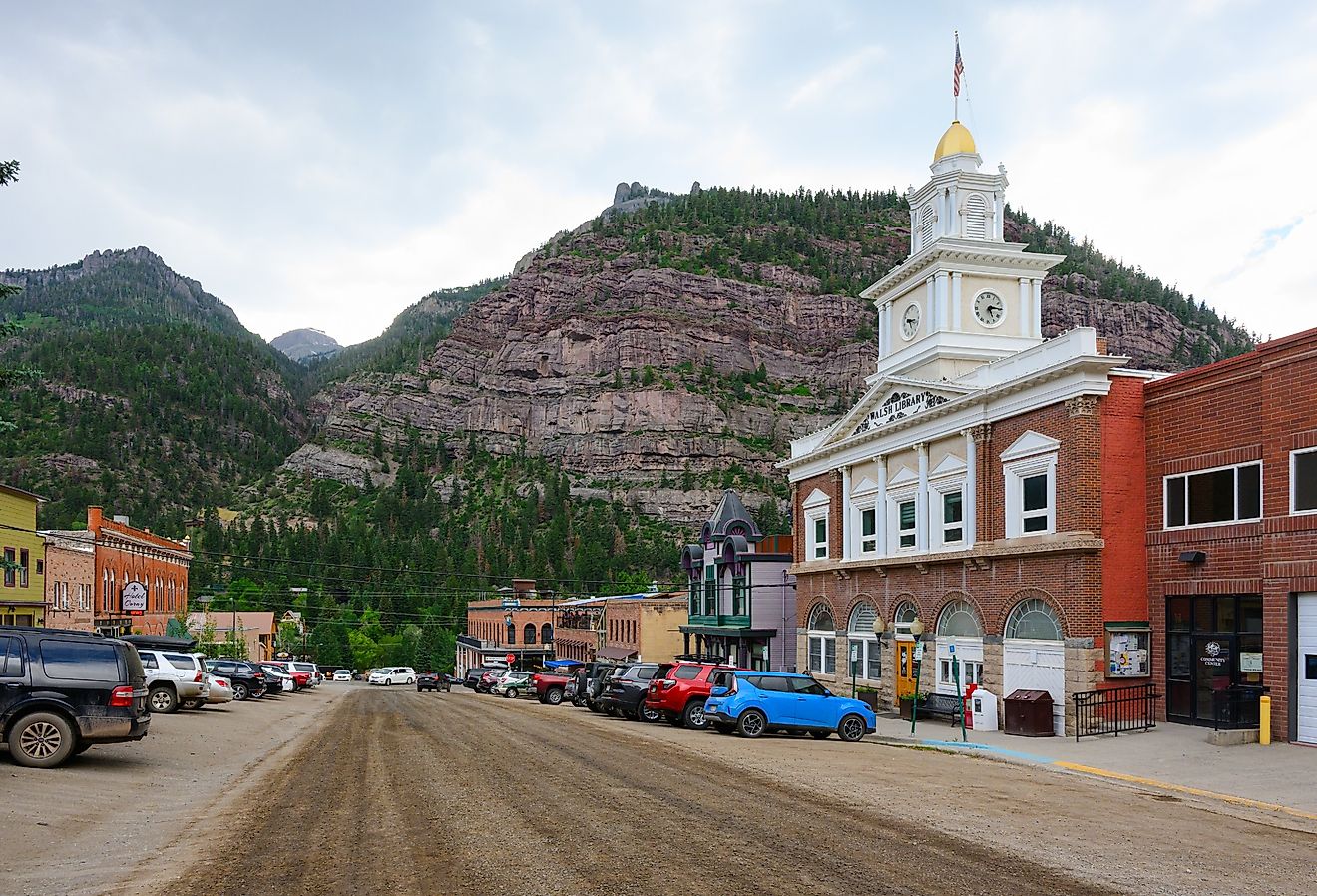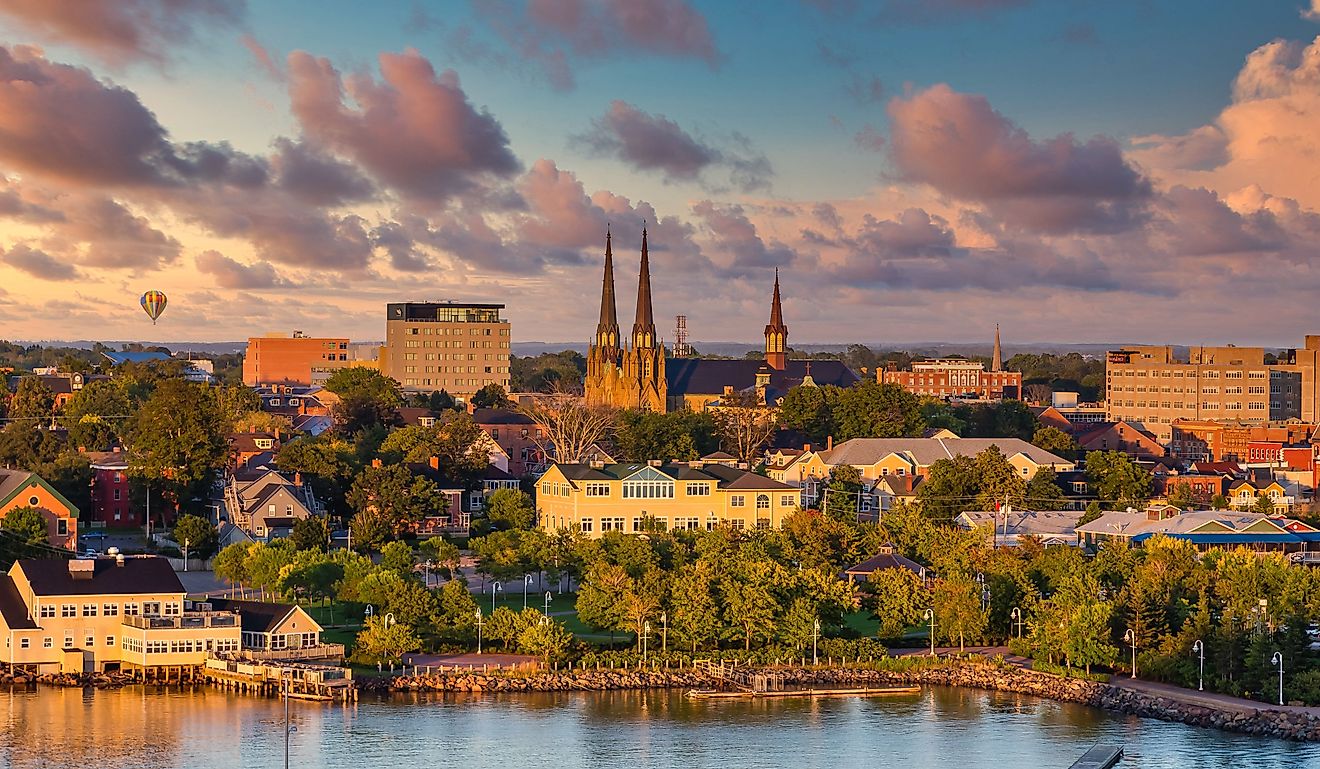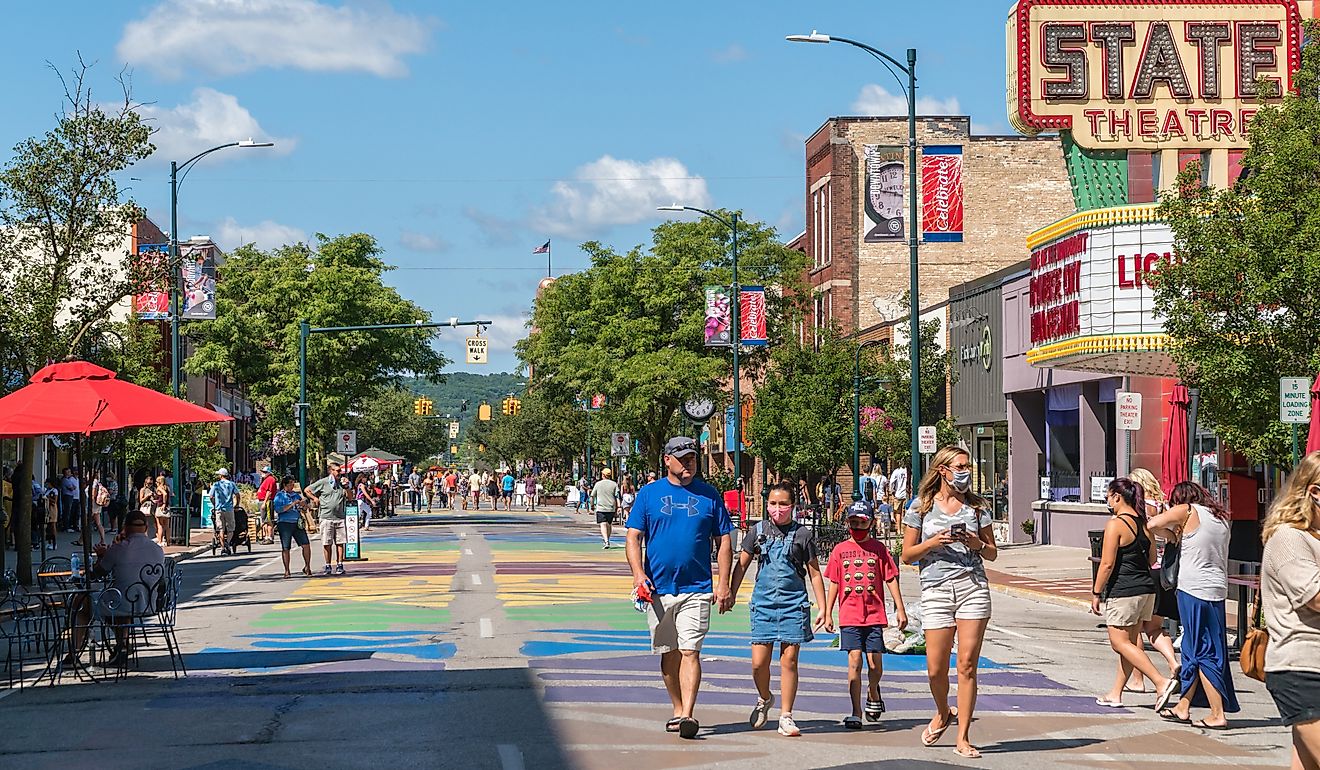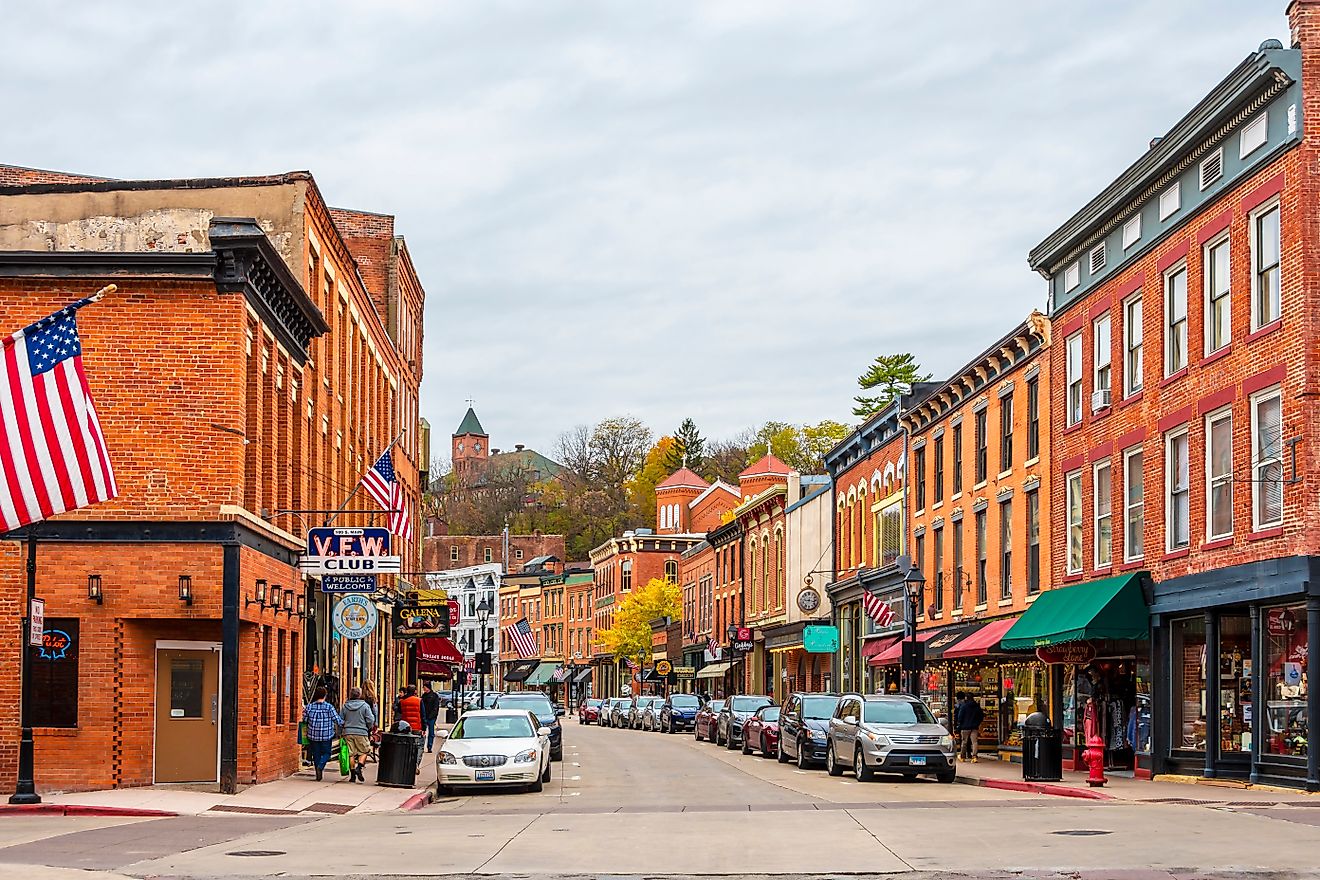
These 13 Small Towns in Oklahoma Were Ranked Among US Favorites
The landlocked US state of Oklahoma, situated in the country’s south-central region, is esteemed for its incredible geographical diversity. From rugged mountain ranges and rolling plains to numerous crystal-clear water bodies, Oklahoma is considered a paradise for outdoor lovers and those who wish to reconnect with nature. Although Oklahoma City – the state capital & largest city, and Tulsa – the second-most populous city, serve as the state’s principal economic anchors and popular tourist locales, the innumerable small towns dotting the Sooner State also attract many vacationers from all over the globe. These adorable towns, with their breathtaking natural scenery, rich Native American heritage, thriving cultures, and a wide variety of outdoor recreations, offer a memorable experience for every visitor.
Medicine Park
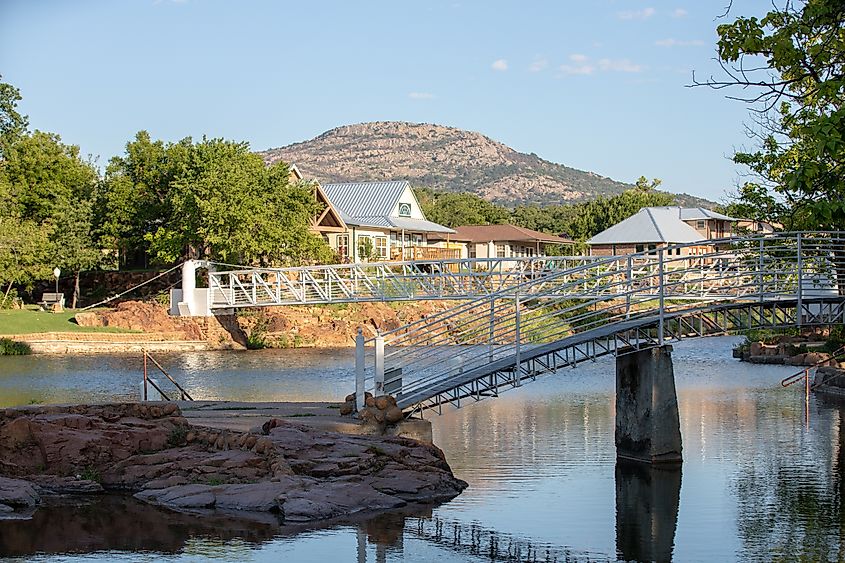
A laid-back mountain town in Southwest Oklahoma’s Comanche County, Medicine Park is situated at the base of the Wichita Mountains, close to the entrance of the 60,000-acre Wichita Mountain Wildlife Refuge. Sandwiched between the city of Lawton and Fort Sill, Medicine Park’s fame as a “vintage cobblestone resort town” spans several decades. In addition to being the state’s first resort town, Medicine Park is acclaimed for its magnificent mountains and exquisite red granite cobblestone deposits. Several of the area’s original structures have been built using these naturally formed deposits unique to the Wichita Mountains. Visitors must stroll down Cobblestone Row – the tiny town’s main street and browse the several independent retail stores, souvenir shops, and charming eateries. The Medicine Creek, which flows through the heart of the town, is yearly stocked with rainbow trout, while two dams have been constructed on it to form the Bath Lake Swimming Hole that offers swimming opportunities to vacationers. Tourists can also participate in ample recreational activities at the nearby Wichita Mountains Wildlife Refuge and Lake Lawtonka, enjoy animal feeding shows at Medicine Park Aquarium & Natural Sciences Home, watch plays at the Discovery Outpost Performing Arts Inc., and hike the Medicine Park Black Trail Loop.
Guthrie
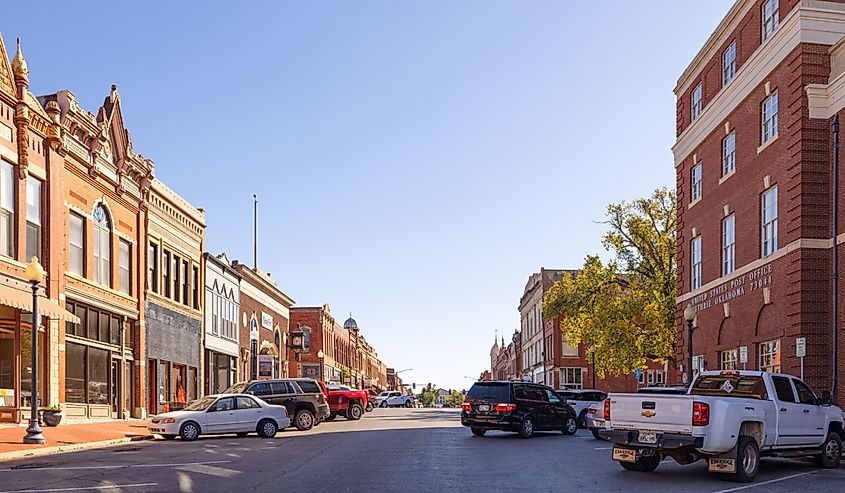
The administrative center of Logan County, Guthrie, is situated in the Frontier Country region at the heart of the state, about 32 miles north of Oklahoma City. Named after the Kansas Judge John Guthrie, the town is renowned for its vast collection of the late 19th and early 20th century historic Victorian architecture. Designated as a National Historic Landmark District, the Guthrie Historic District, encompassing the town’s commercial core, contains 2,169 buildings in different architectural styles. Some of Guthrie’s noteworthy attractions include the Oklahoma Territorial Museum & Carnegie Library, the iconic Blue Belle Saloon, Pollard Theatre, Guthrie Scottish Rite Masonic Temple, State Capital Publishing Museum, Territorial Capital Sports Museum, and Oklahoma Frontier Drugstore Museum. Tourists can take a trolley tour through the downtown to witness these historic structures, besides specialty shops, antique stores, art galleries, and countless bed & breakfasts. Guthrie’s cultural arts district has a thriving music scene, while the town hosts several annual festivals like the Oklahoma International Bluegrass Festival, the Eighty-Niner Day Celebration Parade, Guthrie Jazz Banjo Festival, and the Territorial Christmas.
Sulphur

Murray County’s seat, Sulphur, is an attractive town in south-central Oklahoma, situated at the meeting point of U.S. Highway 177 and State Highway 7, approximately 84 miles southeast of Oklahoma City. Even before the town’s founding, the surrounding area was known for its mineral springs, and the town was thus named due to the presence of sulfur in these water bodies. Located immediately south of the town is the Chickasaw National Recreation Area, Sulphur’s most notable attraction and a popular tourist destination. The town’s other must-visit attractions include the Chickasaw Cultural Center, Vendome Well, Veterans Lake, and the Arbuckle Mountain range, offering plenty of hiking and recreational opportunities.
Broken Bow
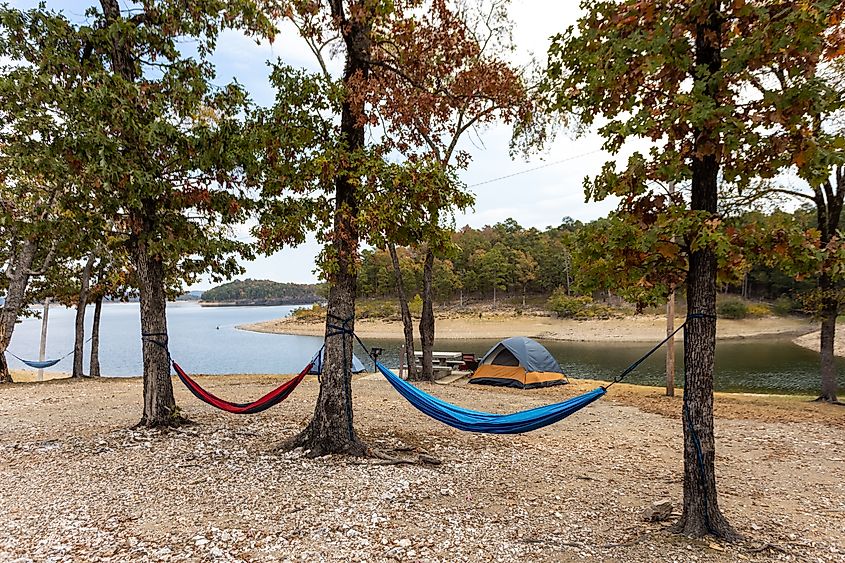
At the foothills of the Kiamichi Mountains is Broken Bow, a charming McCurtain County town located within Oklahoma’s Little Dixie region. Home to a population of 4,228 inhabitants, Broken Bow is one of the state’s finest destinations, offering an ideal combination of adventure and relaxation. Placed about 9 miles northeast of Broken Bow is the 14,000-acre Broken Bow Lake, created by the impoundment of the Mountain Fork River. Nature enthusiasts are primarily attracted to the 22-mile stretch of the lake back into the Ouachita Mountain Country, where the lake’s outstanding scenic beauty mesmerizes everyone. In addition to Broken Bow Lake, the town’s other prominent attractions include the Beavers Bend Resort Park, Cedar Creek Golf Course, Hochatown Petting Zoo, Bigfoot Sppedway, Hochatown State Park, Beavers Bend Brewery, and Choctaw Casino. History buffs would like to browse the various artifacts displayed at the Gardner Mansion & Museum, Forest Heritage Centre Museum, and the Indian Memorial Museum.
Bartlesville

Bartlesville, the county seat of Washington County, is located close to the Washington-Osage county line, about 47 miles north of Tulsa and 18 miles south of the Oklahoma-Kansas border. Named in honor of Jacob H. Bartles, the white son-in-law of Delaware Chief Charles Journeycake, Bartlesville gradually developed from an oil boomtown and leading energy center to a quaint tourist destination. Travelers must explore Bartlesville’s interesting attractions, including the 221-foot-tall Price Tower, Frank Philips House, the 12-mile-long Pathfinder Parkway trail, Bartlesville Community Center, Woolaroc Museum & Wildlife Preserve, Old Washington County Courthouse, Phillips Petroleum Company Museum, Wall of Honor inside Washington Park Mall, Nellie Johnstone No. 1 – Oklahoma’s first commercial oil well, Jo Allyn Lowe Park, and Bartlesville Area History Museum. The town also hosts many annual events like the OKM Music, Sunfest, Oklahoma Indian Summer Festival, and Bartlesville Biplane Expo.
El Reno

Named after the neighboring old military post of Fort Reno, the administrative center of Canadian County occupies the heart of the Canadian River Valley at the intersection of U.S. Route 81 and Interstate 40, approximately 25 miles west of downtown Oklahoma City. In fact, El Reno offers a great small-town ambiance with easy access to all the amenities of major urban metropolises. Vacationers visiting El Reno can board the Heritage Express Trolley to take a tour of the downtown area, relive history at Fort Reno, visit the Canadian County Historical Museum, participate in an array of outdoor recreations along Lake El Reno, spend some relaxing time at the city parks, play a round of golf at Crimson Creek Golf Course, gamble at the Lucky Star Casino, and watch a movie at Reno 8 Movie Theater. El Reno also serves as a venue for several annual events like the Fried Onion Burger Day Festival, Oklahoma Indian Nations Pow Wow, and Christmas on the Western Frontier.
Kenton

One of the most remote towns in the state’s Panhandle region in the extreme northwestern corner of Cimarron County, Kenton is located in the Cimarron River Valley along the southern banks of the Cimarron River. Home to a population of only 31 residents, Kenton is the only town in Oklahoma that observes Mountain Time. Visitors must tour the Kenton Museum, which houses a vast collection of antiques, period photographs, and artifacts that helped settle this “No Man’s Land.” Moreover, Kenton is a gateway to the adjacent Black Mesa State Park, well known for its gorgeous scenery and the pristine Lake Carl Etling. Visitors can also check out the nearby Preston Monument, Carrizo Canyon, and some dinosaur tracks preserved in a sandstone strata beside Carrizo Creek. After a hectic day of exploration, rest at one of the town’s guest ranches or a cozy Bed&Breakfast.
Hugo

Hugo, the administrative seat of Choctaw County, named in honor of the French novelist Victor Hugo, is situated at the southern terminus of the 105-mile-long Indian Nation Turnpike in southeastern Oklahoma, about 9 miles north of the state boundary with Texas. The region’s mild climate made the town favorable as a wintering home for some circus performers and rodeo companies. As a railroad hub of the early 1900s, Hugo was at the heart of all activities, having a vivid mix of countless dance hall girls, hustlers, and gunfighters. The town is home to several attractions, such as the Frisco Depot Museum & Harvey House Restaurant, Hugo National Guard Armory, Hugo Public Library, the Endangered Ark Foundation, and the Showman’s Rest portion of Mt. Olivet Cemetery – reserved as the final resting place of performers. At the town’s northeast, Hugo Lake and the adjoining Hugo Lake State Park offer an array of recreational activities for outdoor enthusiasts.
Arcadia

Founded just after the Oklahoma Land Rush of 1889, Arcadia is situated close to the Deep Fork River in Oklahoma County, approximately 17 miles northeast of Oklahoma City. A once-thriving agricultural center, Arcadia is famed for its iconic Round Barn constructed by a local farmer, William Harrison Odor, on the historic U.S. Route 66. The barn is Arcadia’s most well-known tourist attraction, and visitors come here in large numbers to admire the intricate architectural and engineering details of the nation’s only authentic round barn. Arcadia faced severe hurdles during the Great Depression and World War II, which led the inhabitants to migrate to larger urban areas for work. This town of only 169 residents welcomes tourists to visit the Round Barn and other wonderful attractions like Old Route 66 Filling Station, OK County 66 – John’s Place, and the Pops restaurant.
Claremore

Claremore is set at the base of the Ozark Mountains in Northeastern Oklahoma, close to the meeting point of the historic Route 66 and State Highways 20 and 88, about 29 miles northeast of Tulsa. Named in honor of the Osage Indian chief Claremore, the town is best known for being the home of the early 20th-century Native American performer Will Rogers. History buffs must visit the Will Rogers Memorial Museum, J. M. Davis Arms & Historical Museum, and numerous other historical sites like the Belvidere Mansion. Outdoor enthusiasts can fill their lungs with fresh country air and enjoy breathtaking views while strolling through Claremore Lake Park’s walking trails.
Prague

Initially settled by Czech immigrants and named after the capital and the largest city of the European nation Czech Republic, Prague is located in the southeastern portion of Oklahoma’s Lincoln County, about 7 miles north of Interstate 40. Travelers touring this small community must take a walk down Jim Thorpe Boulevard, covered with brick buildings dating back to the late 19th century, visit the National Shrine of the Infant Jesus of Prague in St. Wenceslaus Catholic Church, check out the Bohemian Hall and Prague Historical Museum, admire the historic Prague City Hall and Jail, and the countless photo-op worthy murals scattered all over the town. Prague celebrates its Czech culture at the ‘Kolache Festival,’ held on the first Saturday of May every year.
Perry

This small town in north-central Oklahoma’s Noble County is located about 60 miles north of Oklahoma City and 100 miles south of Wichita, Kansas. Listed on the National Register of Historic Places, the Perry Courthouse Square Historic District, comprising numerous historically significant buildings like the Noble County Courthouse, First National Bank & Trust Company Building, and Wolleson-Nicewander Building, draws lots of history enthusiasts. Perry’s other must-visit attractions include the Cherokee Strip Museum, Rose Hill School – Cherokee Strip Regional Heritage Center, and Perry Wrestling Monument Park. Nature lovers would love to participate in the different outdoor recreational activities or spend a relaxing day at Perry Lake Park.
Eufaula

Eufaula, the seat of McIntosh County, is situated about 31.7 miles south of Muskogee and 29.8 miles north of McAlester in the state’s east-central portion. The town’s principal attraction is the Eufaula Lake – Oklahoma’s largest-capacity lake, created by the construction of the Eufaula Dam on the Canadian River. The Lake Eufaula State Park offers endless water-based recreational activities to millions of tourists visiting the lake area annually. Moreover, Eufaula’s Main Street is lined with local museums, exquisite boutiques, antique stores, cozy eateries, and performance venues that provide year-round entertainment.
From the cobblestone structures of Medicine Park to the captivating scenic beauty of Broken Bow, each of the small towns in the nation’s 20th-most extensive and 28th-most populous state allure tourists with their distinctive charm. So, whether you are searching for serene locales close to the big cities for visiting on a quick day trip or a place to engage in ample outdoor adventures, these pretty small towns in the “Land of the Red Man” will surely not disappoint.
